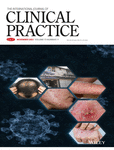Association of Dietary Inflammatory Index (DII) with disease activity and inflammatory cytokines in the patients with rheumatoid arthritis
Funding information
This study was financially supported by Tabriz University of Medical Sciences, Tabriz, Iran.
Abstract
Objectives
This study aimed, at first, to assess Dietary Inflammatory Index (DII) in participants with rheumatoid arthritis (RA) and compare them with healthy controls. Then, to evaluate the association of DII with the risk of RA occurrence, the severity of disease, and systemic inflammation.
Methods
This case-control study enrolled 100 newly diagnosed cases with RA and 100 age and sex-matched healthy controls. DII was computed based on the individuals’ FFQ-derived dietary data. Serum levels of inflammatory markers, including the high sensitivity C-reactive protein (hs-CRP) and Tumour Necrosis Factor-alpha (TNF-α), were measured using the ELISA method; and the severity of the disease was assessed based on the disease activity score 28 (DAS-28).
Results
The mean DII score was higher in the RA patients as compared with that in the controls (0.66 ± 0.23 vs. −0.58 ± 0.19, P = .002). Patients with the highest DII had significantly higher serum inflammatory (hs-CRP and TNF) and clinical markers (DAS-28 score and the number of tender joints). A significant univariate relationship between DII score and risk of RA incident [6.48 (95% CI: 1.79 to 23.44)] disappeared in multivariate analysis. For each 1-unit increase in DII, the DAS-28 score was raised by 1.11 times (P = .001).
Conclusion
An inflammatory diet may act as a potential risk factor contributing to the development of RA and its severity. Therefore, dietary modification with the goal of reducing the DII score could be a beneficial strategy to improve the clinical outcomes in such patients.
CONFLICT OF INTEREST
The authors declare that they have no conflict of interest.
Open Research
DATA AVAILABILITY STATEMENT
The data that support the findings of this study are available from the corresponding author upon reasonable request.




